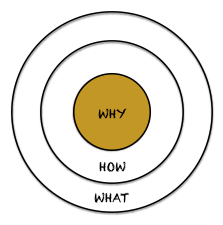On the Search for Purpose
“He who has a why to live for can bear almost any how.” – Friedrich Nietzsche
Purpose Is Not Abstract
There’s not much more daunting than feeling pressure to define your purpose in life. It requires understanding yourself, strengths and weaknesses, interests and motivations, experiences and perspectives. Knowing your purpose requires deep reflection and wanting to do the work. It also takes defining ‘purpose,’ what it is and what it isn’t.
Purpose isn’t found reading enough self-help books. It isn’t about just doing what you’ve been told to do. Purpose isn’t about a singular pursuit of self. It isn’t a vague aspirational statement about what you want to do or the person you want to be — “I want to make the world a better place.” No, that’s not very useful.
In his book Transcend, Scott Barry Kaufman writes, “The need for purpose can be defined as the need for an overarching aspiration that energizes one’s efforts and provides a central source of meaning and significance to one’s life.”
I don’t know what your purpose is. However, I do know that your specific purpose will make the world a better place. Kaufman writes, “Wanting to make the world a better place is primarily driven by the desire for growth–the cultivation of growth in one’s self and others–not primarily the drive for money, status, and power.”
While ‘making the world a better place’ is not a purpose, it is an outcome of purpose. An awareness of your purpose allows you to cultivate an environment, both mentally and physically, to support it.
To Bridge and Repair
The biggest deficit in our modern society is a lack of social connection and belonging. The symptoms of this deficit include depression, suicide, mass gun violence, political polarization, and apathy towards critical issues like climate change.
This deficit has been growing for decades. Money-driven media and politics share blame. Our national ideals of individualism and personal freedom manifest in the way we view city planning, community involvement, and individual rights over collective wellbeing. Ironically, social media is one of the greatest contributors to this deficit as misinformation spreads rapidly and people hide behind the virtual wall. And, it seems as if the pandemic has exacerbated it through months of semi-isolation, economic fallout, and disparate interpretations of the severity of the virus and its effects.
Our social deficit is both a personal and collective problem. Shared reality through mutual understanding is a requirement for a healthy life and healthy communities. Yet, we are far from this today. Scott Barry Kaufman writes, “…to have a society that enjoys a shared reality that is also accurate requires different people, with their own interpretation of reality, debating and engaging with one another.” The issue today is not a lack of interpretations of reality. You might argue we have too many. It is, however, with debating and engaging with one another to co-create a shared reality.
As a part of reading and writing about these ideas, I stepped back and reflect on my purpose. Quite simply, my purpose is to foster sincere, empathic, interpersonal communication that bridges and repairs the social deficit in society.
Why Purpose Matters
Honing in on your purpose requires work. It takes writing, exploration, and reflection. Most importantly, it’s dynamic. We iterate on the nuances of our purpose as we learn and grow, as the world around us changes.
Purpose motivates and inspires us to do meaningful work in both our personal and professional lives. In his book Start With Why, Simon Sinek proposes a concept called “The Golden Circle.” It is a set of concentric circles with the words, from outside in, What, How, and Why. For Sinek, great leaders and businesses start with the “why” to inspire others. I believe we should leverage this concept for ourselves.

Having a clearly defined purpose means knowing the “why” for the work you choose to do. What you do or create and how you do it should flow out from this core. The why allows us to become what we can and must be. We become better people–for our families, friends, and communities–when we have clarity of purpose.
Member discussion